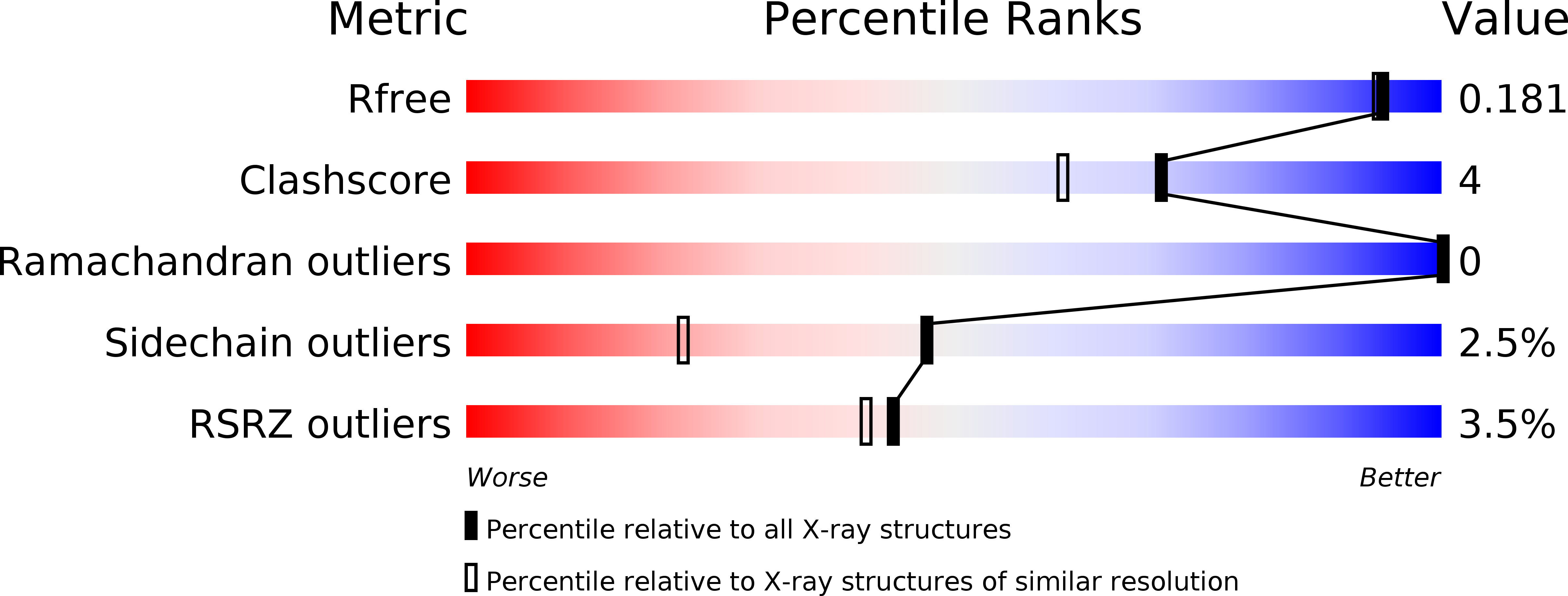
Deposition Date
2016-08-25
Release Date
2016-11-30
Last Version Date
2024-11-20
Entry Detail
PDB ID:
5T3I
Keywords:
Title:
cyan fluorescence protein soaked with selenourea for 5 min
Biological Source:
Source Organism:
Aequorea victoria (Taxon ID: 6100)
Host Organism:
Method Details:
Experimental Method:
Resolution:
1.60 Å
R-Value Free:
0.17
R-Value Work:
0.13
R-Value Observed:
0.13
Space Group:
P 21 21 21


